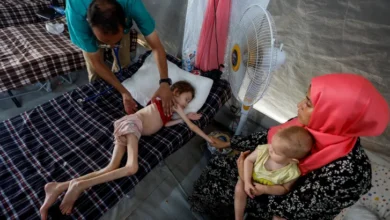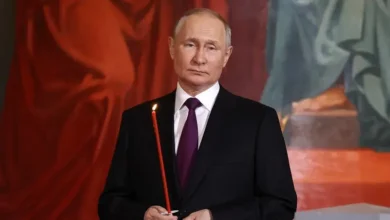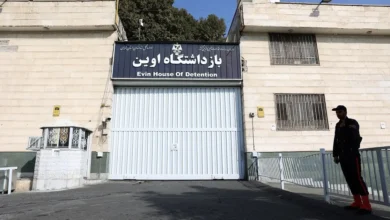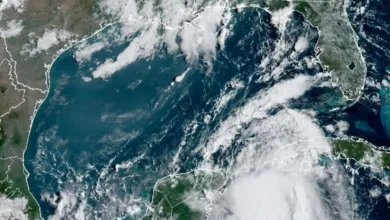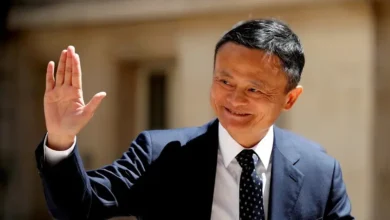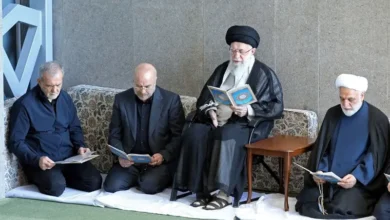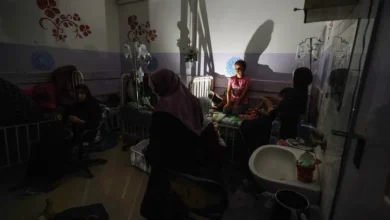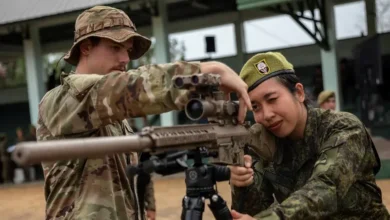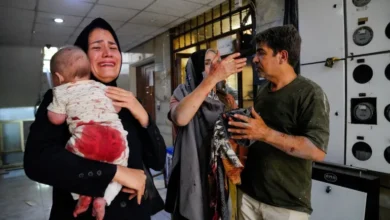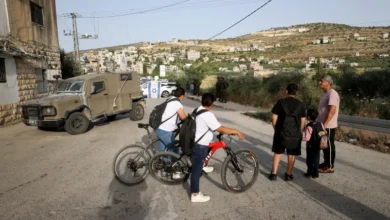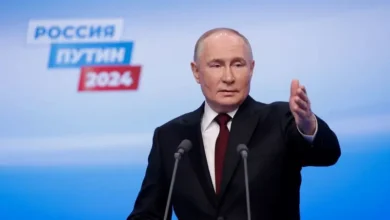Ukraine, Britain announce security agreement during Kyiv visit by PM Sunak
British Prime Minister Rishi Sunak has signed a new security agreement with Ukraine’s president and announced an increase in military funding for the war-wracked country during a visit to Kyiv.
Britain, one of Ukraine’s closest allies during the Russian invasion, will increase its support in the next financial year to 2.5 billion pounds ($3.2bn), an increase of 200 million pounds ($255m) on the previous two years, Sunak said on Friday.
The funding would cover long-range missiles, air defence, artillery ammunition and maritime security.
“Our opponents around the world believe that we have neither the patience nor resources for long wars, so waver now, and we embolden not just [Russian President Vladimir] Putin, but his allies in North Korea, Iran and elsewhere,” Sunak told a press conference.
Ukrainian President Volodymyr Zelenskyy said Ukraine and Britain also signed an “unprecedented security agreement” on Friday, an accord that would remain in effect until Ukraine joins the NATO military alliance.
“This is not simply a declaration. This is a reality that will come to fruition as a result of our cooperation, including security commitments from a major global power, the United Kingdom. If the UK and other countries had provided such a level of guarantees after 1991, there would have been no Russian aggression at all,” Zelenskyy wrote on the social media platform X.
He added that the common goal was to ensure that an attack on Ukraine “will never happen again” once the war ends.
Sunak first visited Ukraine in November 2022, soon after he became prime minister. Britain has been one of Ukraine’s most vocal backers.
Ahead of his visit, former Russian President Dmitry Medvedev had warned that any move by Britain to deploy troops to Ukraine would be a “declaration of war against our country”.
Both Ukraine and Russia are scrambling to replenish their weapons after 22 months of fighting and the potential for a protracted conflict. The roughly 1,500km (930-mile) front line has been largely static during winter, and both warring sides require artillery shells, missiles and drones that enable long-range strikes.
Kyiv says Moscow is receiving artillery shells and missiles from North Korea and drones from Iran. On January 4, the White House cited US intelligence officials as saying that Russia acquired ballistic missiles from North Korea and is seeking them from Iran.
Kyiv seeks more military aid
Zelenskyy is pushing his country’s Western allies to provide Ukraine with more support on top of the billions of dollars in military aid it has already received.
This week he visited the Baltic countries Lithuania, Estonia and Latvia to rally support against Russia and search for new pledges. The Eastern European countries, which are also among Kyiv’s staunchest supporters, promised more missiles, drones, howitzers and artillery shells.
Zelenskyy has warned that Ukraine particularly needs air defence systems to fend off recent Russian aerial barrages. More than 500 drones and missiles were fired at Ukraine from December 29 to January 2, according to officials in Kyiv.
Sunak said the UK recognises that Ukrainian security “is our security”.
“Today we are going further – increasing our military aid, delivering thousands of cutting-edge drones and signing a historic new security agreement to provide Ukraine with the assurances it needs for the long term,” he said.
Elsewhere, however, support for Ukraine’s war effort is sputtering.
A plan by US President Joe Biden’s administration to send $60bn in new funding to Kyiv is being held up in Congress.
Europe’s pledge in March to provide 1 million artillery shells within 12 months has also fallen short with only about 300,000 delivered by the end of last year.
